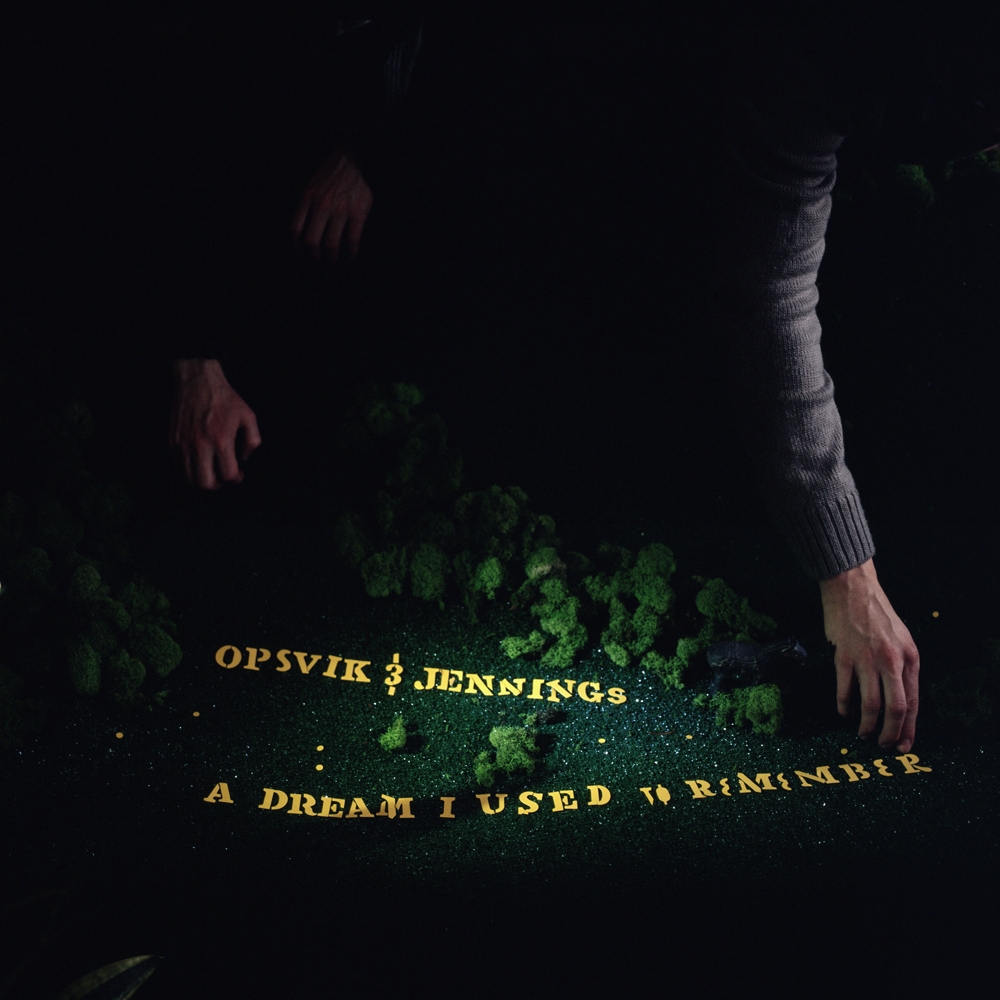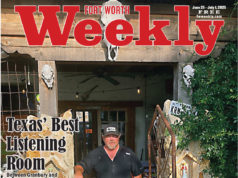A Dream I Used to Remember is the third installment in the unlikely collaboration between a Norwegian experimental jazz bassist (Loyal Label honcho Eivind Opsvik) and an Oklahoman guitarist-banjoist-software geek (Aaron Jennings). A cursory glance at the instrumentation –– lap steel and pump organ alongside a banjo, a horn section and choir –– might lead one to expect something in the “freak-folk” realm, but this comes from a different place.

Think of it as the soundtrack to a movie that hasn’t been made yet or that you have to provide yourself. It’s evocative of the forward-looking arty rock of Jennings’ fellow Sooners, The Flaming Lips, in their Soft Bulletin daze or the like-minded Mercury Rev of Deserter’s Songs. If that comparison seems far-fetched, just listen to the way the title track’s hazy electronics sound like a freight train moving slowly through a wind-blown night, before harp-like chords come ringing through a wheezing pump organ as “Canada” gets underway.
What makes this disc such a seductively addictive listen? Maybe it’s the way Opsvik and Jennings employ rustic instrumentation to play arrangements of densely Modern complexity or the way they use ethereal-sounding, wordless choral vocals to evoke something celestial (or perhaps just the flutter of a human heart) on “Swimming Back Into the Picture” and “Sleepy Rush.” The whole thing feels epic, down to the elegiac melody that they overlay with percussion clatter on the closing “Sunroad.” Overall, it’s a dream worth remembering.— Ken Shimamoto
Prefecture is a Seattle-based label helmed by percussionist/composer/instrument builder Paul Kikuchi. These releases by two of his bands highlight the artist’s interest in “experimental percussion, microtonality, and unusual acoustic environments,” according to the label. Their proximate models might be Brian Eno and Harry Partch, but these discs are more than just pastiche.
Under the rubric Open Graves, Hollow Lake is a duet between Kikuchi and Bay Area muso Jesse Olson, recorded inside an empty two-million-gallon water cistern. Between them, they employ an arsenal of sound generators that includes slit drum, trombone, walkie-talkies, and homemade instruments. The music they create together is as spacious as the setting in which it was made, with an almost ceremonial dignity and repose. Each piece unfolds in an unhurried manner, allowing each note ample room to breathe. This is haunting, evocative stuff.
Recorded as Tide Tables, Lost Birdsongs documents the collaboration between Kikuchi and San Franciscan Alexander Vittum, who shares Kikuchi’s enthusiasm for electronic music and the masterwork of pioneering free jazz percussionist Milford Graves. Recorded in more conventional settings –– a Seattle gallery performance and two New York studios –– the recording juxtaposes the organic sounds of an ensemble that includes reeds, brass, a cello and plenty of tuned percussion with electronic treatments and effects.
You could tar these discs with the “ambient” brush, but that’d imply that they’re background music, while in fact they’re anything but ignorable. Kikuchi’s ensembles paint vivid sound pictures, ones which reward repeated listening.— KS
With a sound ripped from the alt-rock rack at Empire Records, Satellite Dream’s self-released second album, Lift Off, doesn’t just wallow in grunge because the members were weaned on the genre. The Fort Worth trio is hopelessly stuck in the mid-’90s. There’s no other excuse for music theft this blatant and soulless, unless –– like many musicians –– the band is just trying to get laid.
In which case, good show, Satellite Dream. Simplistic, poppy Nirvana numbers like the album’s opening track, “Turnstile,” and the open-D tuned, bouncy, Creed ballad “Inhaling Butterflies” ought to attract drunken sorority girls and maybe even some casual fans of music. Every track is built on an easily identifiable band template (Nirvana, Smashing Pumpkins, Weezer, The Pixies, etc.), played in four-four time and then whitewashed with guitar solos and superfluous flourishes of cheesy keyboards and electronic effects. Lift Off is so loyal to the Top-40 alternative rock format that even guitar playing contributed by The Polyphonic Spree’s Cory Helm is useless, utterly lost in the mix.
The tunes aren’t amateurish in execution or ability. The guitars are competent, and the production is slick. But irrelevant, nonsensical lyrics, redundant arrangements, and aimless high school jamming make the album sound like a forgettable bad dream. Obviously ambitious but too afraid to leave its own comfort zone, Lift Off never really goes anywhere.
— Cole Garner Hill
— K.S.











